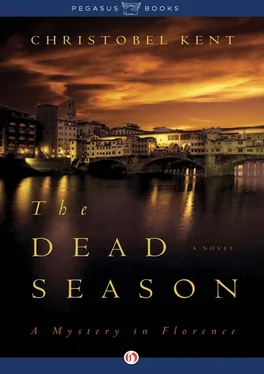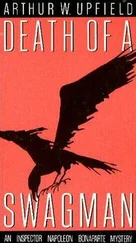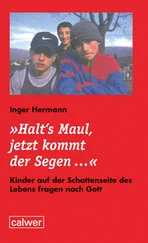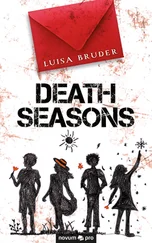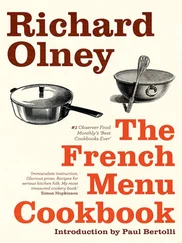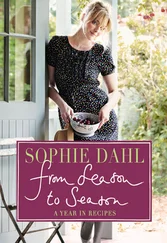Christobel Kent - Dead Season
Здесь есть возможность читать онлайн «Christobel Kent - Dead Season» весь текст электронной книги совершенно бесплатно (целиком полную версию без сокращений). В некоторых случаях можно слушать аудио, скачать через торрент в формате fb2 и присутствует краткое содержание. Год выпуска: 2012, Издательство: Corvus, Жанр: Криминальный детектив, на английском языке. Описание произведения, (предисловие) а так же отзывы посетителей доступны на портале библиотеки ЛибКат.
- Название:Dead Season
- Автор:
- Издательство:Corvus
- Жанр:
- Год:2012
- ISBN:нет данных
- Рейтинг книги:5 / 5. Голосов: 1
-
Избранное:Добавить в избранное
- Отзывы:
-
Ваша оценка:
- 100
- 1
- 2
- 3
- 4
- 5
Dead Season: краткое содержание, описание и аннотация
Предлагаем к чтению аннотацию, описание, краткое содержание или предисловие (зависит от того, что написал сам автор книги «Dead Season»). Если вы не нашли необходимую информацию о книге — напишите в комментариях, мы постараемся отыскать её.
Dead Season — читать онлайн бесплатно полную книгу (весь текст) целиком
Ниже представлен текст книги, разбитый по страницам. Система сохранения места последней прочитанной страницы, позволяет с удобством читать онлайн бесплатно книгу «Dead Season», без необходимости каждый раз заново искать на чём Вы остановились. Поставьте закладку, и сможете в любой момент перейти на страницу, на которой закончили чтение.
Интервал:
Закладка:
And now Sandro was going the same way. ‘So take some time off,’ said Luisa. The irony was, last year it had been Sandro begging her to take it easy, as she recovered from the cancer treatment.
Sitting down at his desk out of habit, Sandro put a hand to his testicles, just for luck. God willing, Luisa would be two years cancer-free in January. He knew you couldn’t breathe again until five had passed, but Luisa was doing a good job: ever practical, she had decided that no purpose was served by thinking about it, so she didn’t.
Even Giuli had been away for a week to the seaside. ‘On your own?’ Luisa had quizzed her straight off, never one for the indirect approach — and on her return, brown as a nut, with a big smile and new fine lines around her eyes (‘Skin cancer, yeah, I know, I know. But it does make you feel good, the sun, doesn’t it?’), she’d been straight out of the gates with a favour to ask.
‘I don’t know if she’s got any money,’ Giuli had pleaded, calling round after her first day back at work at the Women’s Centre. Following it up slyly with, ‘But it’s not as if you’re overrun, is it?’
Standing at the desk with the sweat already beading on his forehead — next year, air-con, vowed Sandro — he could hear her downstairs, the cheerful clatter at the front door, a babble of conversation. She was bringing the client in herself. He downed the thimbleful of coffee, crushed the tiny plastic cup and dropped it in the wastebasket.
‘Hey, Giuli,’ he called through the open door.
She called back, ‘Hey, Babbo.’
‘Babbo’: Dad. It was only half a joke. Part-time at the Women’s Centre — giving free advice on STDs, contraception, pregnancy and the rest for Florence’s errant females, of which there were many and various, from middle-class runaways to Roma to illegal immigrants — and part-time receptionist-cum-assistant to Sandro, Giulietta Sarto could be a nightmare, but she was also the closest thing he and Luisa would ever have to a child.
Forty-three this year, if he remembered right, and now three years clean of drugs and booze and bad men. Giuli was an ex-con into the bargain, although no one but the most hard-hearted would have been unmoved by the full story behind her incarceration. Not a trivial matter, murder, but the man whose throat she’d cut had been her abuser and a murderer himself into the bargain, and Giuli, drug-addicted, anorexic and living on the street, had run out of options.
It was taking them longer than he expected to get up the two short flights of stairs, and Sandro found himself listening. To the slow steps, a couple taken, then a pause. To Giuli’s voice, cheerful, encouraging, solicitous. Sandro was thinking with pride that she’d turned out to be surprisingly good at compassion, little tough-nut Giuli, with her sharp little face and her spiky aubergine-dyed hair. And still listening, he heard the other voice, apologetic, breathless.
His curiosity overcoming him, Sandro was at the door himself when Giuli pushed it open on him, ushering in his first client of the day — the month. My God, thought Sandro, and he took an awkward step back, suddenly nervous as a cat at the sight that presented itself.
‘Sandro,’ Giuli said cheerfully, ‘this is Anna Niescu.’ And fixed him with a frown that said, Pull yourself together. She’s only pregnant .
And she certainly was.
But somehow more pregnant than anyone he’d ever seen before. Not because Anna Niescu was huge, exactly, although the great thrust of her belly was surely close to a full-term gestation, round as a beachball and tight as a drum under a thin cotton dress. If anything, it was because she herself was so tiny, staggering under the burden of her pregnancy: a sweet, small, heart-shaped face, narrow shoulders, one childlike hand clasping a big, cheap handbag against her stomach. Her black hair, shiny as liquorice, was parted in the centre and drawn back in a tight bun: nothing but a child herself, thought Sandro.
He could feel the unwary emotion rising in him at the sight of her. Stop it, he told himself. He stepped hastily back and, remembering himself, pulled out a chair. ‘Please,’ he gestured. ‘Please. Sit down.’
Giuli stood in the door, arms folded.
‘Giuli,’ said Sandro, knowing she was about to put her oar in, ‘a glass of water, maybe? For Signora — ah — for Anna?’
Rolling her eyes, Giuli turned on her heel.
Watching her lower herself gingerly on to the bentwood chair, one hand behind her for support, Sandro remained standing, his heart heavy. Because it was clear to him, first of all, that Anna Niescu’s was an old story and a hopeless one, even clearer that, no, she didn’t have any money, and clearest of all that Sandro would have to help her anyway.
‘So,’ he said gently. ‘When are you due?’
CHAPTER TWO
August
If people weren’t where you expected them to be, well, no wonder: it was August.
Roxana Delfino sat behind her plexiglas teller’s screen in the bank’s gloom with nothing better to do and wondered, for example, whether the Carnevale had closed for August this year, because their guy hadn’t been in with the porn cinema’s takings in a cloth bag, as he had every Tuesday since Roxana’d been there.
In Florence in August you couldn’t rely on anything: not the parking regulations, not the market stalls, not the staff of your favourite bar nor the stock of your favourite grocery, supposing they were open at all. A month off in August, that was the tradition, sometimes brought forward and stretched to five weeks if July became unbearable. For Roxana, who liked things the way she liked them, August in the city was a nightmare.
Her mother said it was why she hadn’t got a man: had said it again last night. ‘You’re thirty-three,’ she’d said darkly. ‘It’s a dangerous age. I had three kids by the time I was thirty-three. You’re just too fussy, Roxana. You have to have everything — just so.’ As if she, Violetta Delfino, was any different.
Roxana had still been grinding her teeth over that when at seven-thirty that morning she had zipped on her silver Vespa down the narrow, high-sided length of the Via Romana, a road that annoyed her every day for its not-quite-straightness, kinked in the middle so she had to ease off halfway down to make the bend. There was — as there always was, even in August — a bus looming behind her, just waiting for her to make a mistake. Not yet eight in the morning and the hot wind had blown on her face like it came straight from a hairdryer.
Roxana had kept her cool, her gloved hands steady on the handlebars; she heard the bus squeal reluctantly to a stop in her wake and she had sailed on.
Then down the Via Maggio, dead straight, stone palaces to either side with their huge eaves projecting so far into the street that they almost met overhead. At ground level the darkened interiors of antique shops, all closed for the month: some with brown cloth blinds down, some with metal shutters, some displaying brocade chaises and heavy wooden frames with patrician disregard for the possibility of a smash and grab. Would anyone have the energy in this heat, Roxana had wondered as she sailed past, to ramraid, to heave all that stuff into a van? The answer, she supposed, was yes: there were always some people desperate enough. Last night a baby had cried somewhere in a nearby house for hours in the heat and eventually a row had interrupted, the child’s father shouting at its mother, the mother screeching, Just do it. Finish me off .
Three kids, and where were the others, Mamma? she wanted to say, but never did. Got their freedom and left Roxana to look after Ma. Luca in London, twenty-nine and working in a bar, clubbing till dawn most nights, taking God knew what illicit substances — but Luca could do no wrong. Susanna was up north, working in a hotel in Lugano on the Swiss border, with two kids under three and a feckless husband who kept disappearing, but at least she was married, at least she had her family. And Roxana wasn’t going to tell Mamma how it really was: and even if Susi called at least once a week to moan about Carlo, sounding worn out and angry, then she’d say, the kids were beautiful, it was worth it. That was always how the call ended: a coded warning not to tell Mamma.
Читать дальшеИнтервал:
Закладка:
Похожие книги на «Dead Season»
Представляем Вашему вниманию похожие книги на «Dead Season» списком для выбора. Мы отобрали схожую по названию и смыслу литературу в надежде предоставить читателям больше вариантов отыскать новые, интересные, ещё непрочитанные произведения.
Обсуждение, отзывы о книге «Dead Season» и просто собственные мнения читателей. Оставьте ваши комментарии, напишите, что Вы думаете о произведении, его смысле или главных героях. Укажите что конкретно понравилось, а что нет, и почему Вы так считаете.
